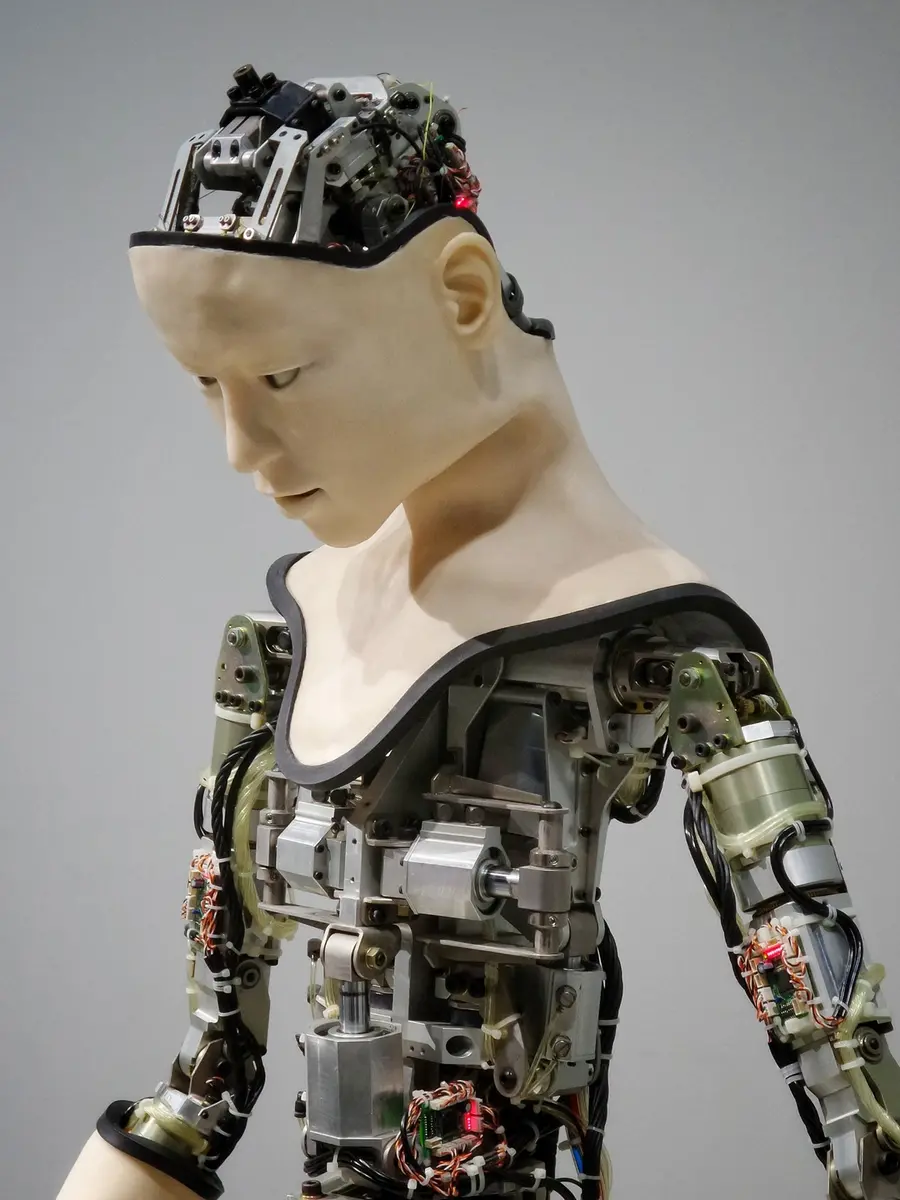Artificial Intelligence (AI) has been around a lot longer than many of us realise, think predictive text, smart devices and Google Translate. However, this last year has seen a rapid evolution in AI and AI related technologies. The launch of Chat GPT in November 2022, and the accompanying media fanfare, felt like the moment AI became mainstream. Not a week has passed since then without AI hitting the headlines. From predicting the weather and issues with deep fakes to AI generated music and voice cloning, every part of society has been impacted by this AI revolution.
We can already see some of the huge societal benefits AI has the potential to provide. But, as with anything new and shiny, it’s easy to get swept up by overly positive narratives of change at the expense of acknowledging some of the more negative impacts that this technology brings with it. Beyond the technological considerations, there are swathes of ethical issues to consider surrounding AI.
This blog addresses some of the main challenges surrounding AI ethics, including issues of biased data, flawed model use, model ethics, generative models, workers' rights, and environmental impact.
Biased Data
The foundation of any AI system lies in its training data. Many AI models are trained on vast datasets extracted from the internet, which, in turn, contains a significant amount of biased information. These datasets may inadvertently perpetuate societal prejudices, reinforcing existing biases and leading to skewed outcomes. Moreover, the underrepresentation of certain groups or cultures in these datasets, i.e. countries with languages not widely spoken or have poor representation on internet, can result in discriminatory AI systems, which further exacerbate social inequalities.
Flawed Use of Models
While AI can offer valuable insights, the interpretation of AI-generated information remains a significant ethical challenge. Decisions surrounding what information is deemed ethical and how it should be interpreted are subjective and can carry profound consequences. The potential misuse of AI, especially in the context of warfare, raises ethical dilemmas that require careful consideration. Initiatives such as Stop Drone Wars highlight the urgency of addressing these concerns and establishing ethical guidelines for the use of AI in potentially harmful scenarios.
Model Ethics
The responsibility for defining the ethical boundaries of AI often falls on the shoulders of software engineers working at major AI companies. Value alignment, or the process of ensuring AI systems align with societal values, becomes a crucial aspect of ethical AI development. As Dr Mhairi Aitken noted in their recent Turing lecture at the Ri, it's important that discussions around AI ethics “aren't dominated by big tech players or industry players who play perhaps lip service to accountability”. Instead, we need “a discussion that centres the voices of impacted communities”. Striking the right balance between innovation and ethical responsibility is an ongoing challenge that requires collaboration between the technology sector, policymakers, and researchers to establish frameworks that guide ethical decision-making in AI development.

Generative Models
The advent of generative models has introduced new challenges, particularly with regards to intellectual property and copyright. As individuals use AI to replicate the artistic styles of specific creators, concerns about copyright infringement and the unauthorised use of generated content emerge. Instances of illegal use of images obtained through web scraping – the process of using bots to extract information and data from websites - further underlines the need for the responsible use of AI-generated content. These challenges require legal and ethical discussions to establish guidelines for the use of generative models.
Workers' Rights
One of the biggest concerns relates to job displacement with AI technologies. Some argue that job displacement, from AI carrying out tasks and jobs that people have traditionally been employed to do, is an inevitable consequence of the increased usage of AI. Others argue that the future of AI in the workplace will be with human-in-the-loop (HITL). Rather than AI replacing workers, it will be used as a tool by humans.
At this moment in time, it is impossible to predict with any great accuracy how AI will impact our working lives. However, as AI becomes an ever-present feature of our working world, the need to proactively consider the changing relationship between individual jobs and automated technologies will not disappear. Knowing how best to prepare for this future and putting the necessary legal frameworks in place to protect workers’ rights represents an even bigger challenge.

Environmental Issues
The environmental impact of AI, particularly in terms of carbon emissions, is an ethical concern that is gaining prominence. Large AI models, including language models like ChatGPT, can have substantial carbon footprints, especially compared to traditional search engines. It’s important to balance technological advancements with environmental sustainability. Striking this balance is essential to avoiding permanent climate damage as AI technologies, and their mass-adoption, continue to advance.
Conclusion
Over the coming years we will continue to see greater integration of AI technologies into our daily lives. AI will have many positive impacts upon society, and these will be seen in all facets of our lives. However, there needs to be a balance between these positive impacts and the serious ethical considerations and concerns that have been outlined above. This will require a collective effort from Big Tech companies, governments, researchers, lawyers, and the public to navigate these complex issues. As technology continues to evolve, new considerations will emerge. It is important that we engage in dialogues about the ethical concerns, to ensure that what comes next contributes positively to the advancement of society.
Become an Ri member
and gain entry to the CHRISTMAS LECTURES ticket ballot, as well as many other benefits including discounts on all our event tickets. And attend all our Discourses for free!
Find out more